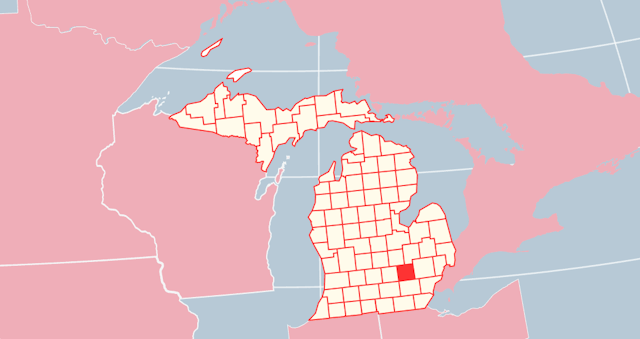Rehabs in Livingston
Livingston County is located in Michigan, United States. As of the 2020 Census, it has 193,866 residents. It is a component of the Detroit, Warren, and Dearborn, Michigan MSA. Howell is the county seat and city with the most population.
However, it has a very serious problem. In the United States, including Livingston, there is an opioid crisis, which is very troubling. In Livingston, there were 14 hospitalizations and 24 visits to the emergency room related to opioid overdoses in 2018. Moreover, 15 opioid overdose deaths occurred, with 15 deaths per 100,000 people.
These are all very worrying numbers. These numbers show how widespread opiate misuse and addiction numbers are in the nation. We should be doing all in our power to fight this problem, either to stop more people from falling into it or to assist those who have already become addicted.
The article will give detailed information about rehabs in Livingston County, Michigan that can help you or the people that surround you. Read and be aware of the steps you should take in this situation.
Substance Use in Livingston County
The problem of substance use doesn't just affect the adult population. Youth are now also using or abusing drugs and alcohol. These problems will continue to hurt unless they are properly handled and resolved. Thankfully, there are several efforts in this area that aim to aid drug misuse prevention.
Efforts to Prevent Substance Use
Luckily, the county does offer a variety of projects to aid in the prevention of substance usage. They are provided through the coalition known as the Livingston County Community Alliance (LCCA). It is an anti-drug alliance. Its mission is to unite the neighborhood to both prevent and reduce teenage addiction. They also work closely with several other organizations, including those in law enforcement and the medical field, among others.
There are other projects as well, for example, the project called The Big Red Barrel, Project Sticker Shock, etc.
Detox Centers
The first step in any healing process is acceptance. You may begin your path to sobriety by admitting that you have a drug use disorder. This is the first stage of rehab that aids in the removal of chemicals that have built up in your body.
During the detox period, it is advised that you get medical help since there might be severe withdrawal symptoms that could cause you to relapse. Your doctor will keep an eye on your whole recuperation.
It's crucial to keep in mind that detoxification alone does not constitute recovery while looking for an alcohol detox center in Howell. Choose a detox facility that offers therapy in addition to the detox procedure. The proper program can assist you in addressing any basic psychological, physiological, as well as, emotional problems that have an impact on recovery.
Treatment Program Categories
Three types of treatment plans are available for healing drug use disorders at rehab facilities. These consist of inpatient, outpatient, and partial hospitalization programs. The degree of a client’s present substance dependency determines when they start healing. You should be aware of the variations among each type while selecting one.
Inpatient Care
Plans for residential treatment are sometimes referred to as inpatient care. Clients with a long history of addiction or severe addiction are best served by inpatient therapy. Patients in this form of a plan have access to doctors' services whenever they need them. So they may receive any necessary medical care. Due to the intricacy of the people’s illnesses, the program begins right after detoxification. It offers a more stringent schedule for the patients. Here they give clients permanent housing.
PHP
The Partial Hospitalization Program is often known as PHP. It follows inpatient therapy and serves as a bridge to outpatient one. People in this kind of plan receive medical attention along with organized treatment during the day for a certain number of hours each week. Patients have the option to live in the facilities or their own houses in this situation. Whether the residences can offer a setting that is conducive to recovery will determine this choice.
Outpatient Care
People who have finished the first two stages can pass to the outpatient one. The patients at these levels may also have modest drug abuse difficulties. Individuals who are at the outpatient level may manage their everyday duties while still receiving medical care and attending arranged therapy sessions. The majority of what determines healing in this plan is self-discipline and dedication to the whole rehabilitation process.

